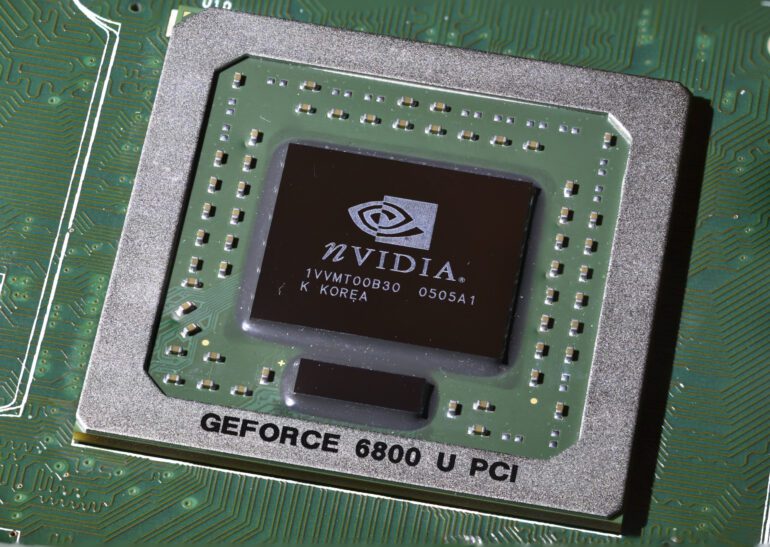TL;DR:
- US to tighten semiconductor chip export restrictions for AI applications to Chinese companies.
- Nvidia faces potential repercussions due to chips created to comply with US guidelines.
- Nvidia’s stock experienced a slight dip but rebounded, with significant revenue coming from China.
- Part of broader US efforts to control AI technology exports, extending to some Middle Eastern countries.
- The impact on Advanced Micro Devices (AMD) remains uncertain, with shares up amid market growth.
Main AI News:
The Biden administration’s recent move to tighten restrictions on the sale of advanced semiconductor chips for use in artificial intelligence (AI) applications to Chinese companies has the potential to affect Nvidia, a prominent AI chip manufacturer. These expanded regulations will broaden the technical parameters of the Commerce Department’s semiconductor chip export restrictions, encompassing chips that align with the new guidelines. This development squarely targets chips recently developed by Nvidia to comply with the United States rules on chip sales to Chinese companies, including their overseas subsidiaries.
In response to the US announcement in October 2022 regarding the prohibition of AI-capable semiconductor sales to Chinese firms, Nvidia swiftly adapted. They modified two of their chips, introducing the H800 semiconductor chip to replace the now-restricted H100 for the Chinese market. Simultaneously, the A800 was developed exclusively for Chinese companies to replace the A100. A recent Reuters report has highlighted the possibility of the H800 falling within the scope of the expanded restrictions.
Upon the news of these regulatory changes, Nvidia’s stock initially experienced a minor dip on Monday, despite a general uptrend in the market. However, the company managed to rebound, with its stock trading up 1% by 1 p.m. Eastern Time. It is noteworthy that Nvidia derives nearly one-fifth of its substantial $13.5 billion in revenue from China, a fact underscored by the earnings report for the quarter ending in July.
This latest expansion of regulations is part of a broader effort by the US government to exert greater control over the export of AI technology. In August, Nvidia disclosed in a regulatory filing that the US had extended its AI chip export restrictions to include select Middle Eastern countries. While Nvidia had previously expressed confidence that these restrictions would not have an immediate financial impact, the company did acknowledge the potential for long-term consequences, particularly on its competitiveness within the industry.
It’s worth noting that these regulatory changes may also have implications for Advanced Micro Devices (AMD). However, at the time of this development, AMD’s shares were up by 2% in midday trading, seemingly unaffected as broader market stocks surged.
Conclusion:
The expanded US export controls on AI chips pose challenges for Nvidia, a key player in the AI chip market. While the immediate stock impact was relatively minor, the company’s significant revenue from China underscores potential long-term consequences. This move aligns with the US government’s broader strategy to regulate AI technology exports, impacting not only Nvidia but also potentially influencing market dynamics. The response from competitors like AMD suggests continued market resilience, but ongoing developments warrant close monitoring.

